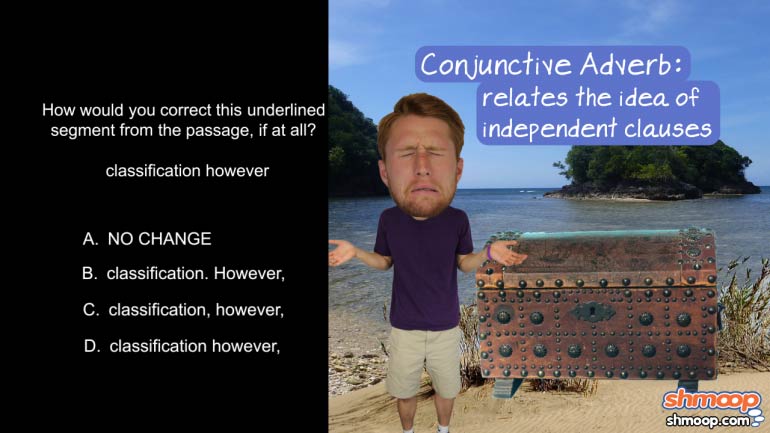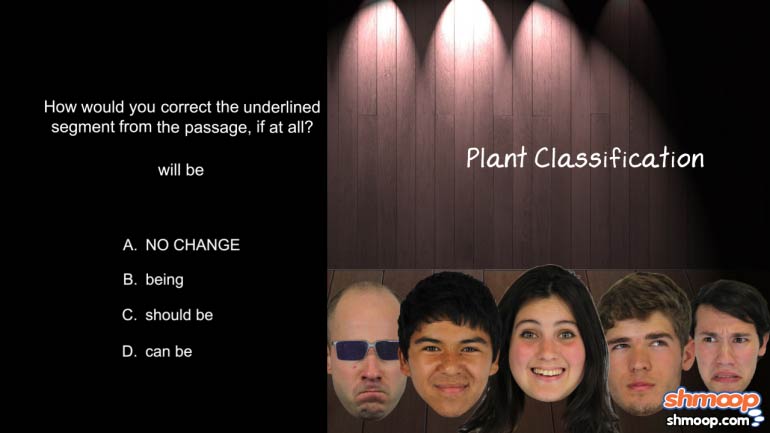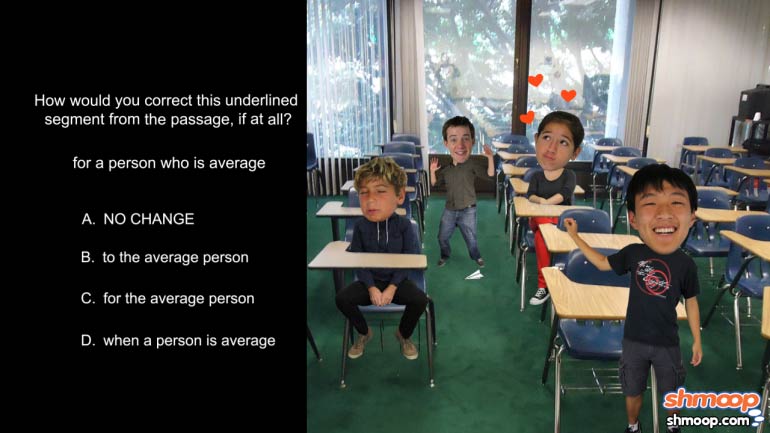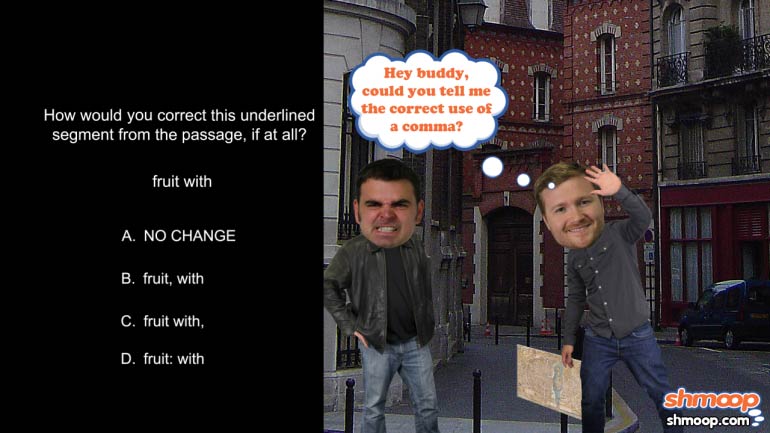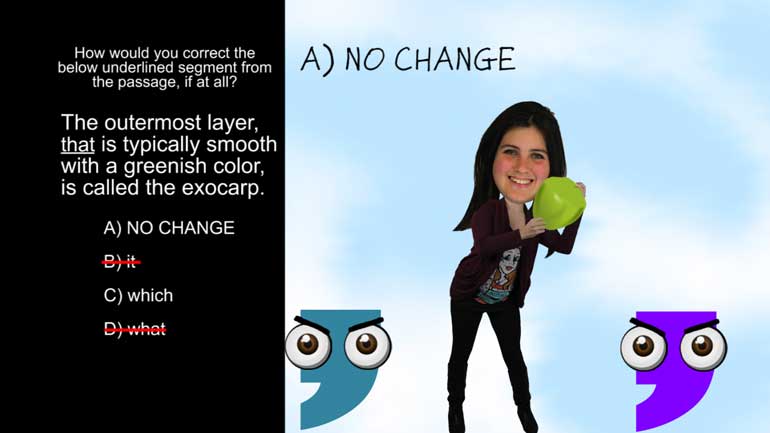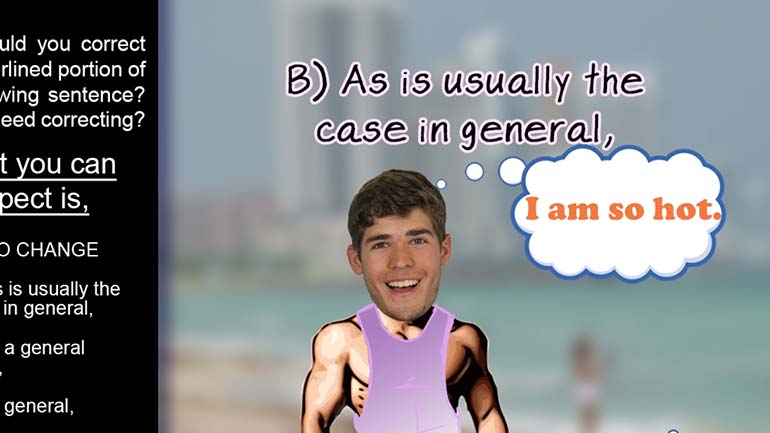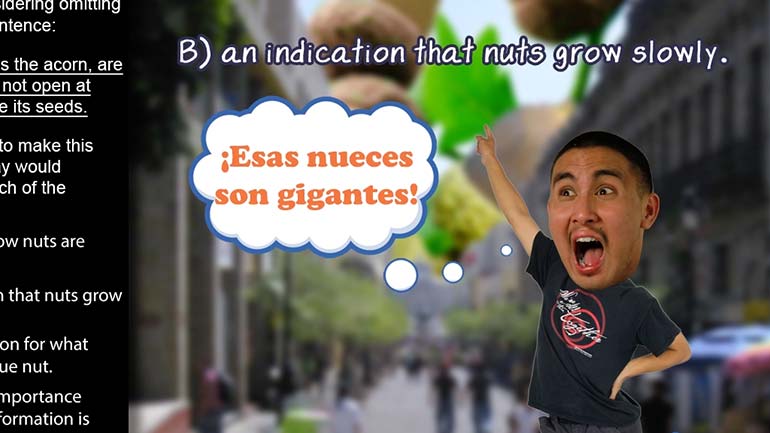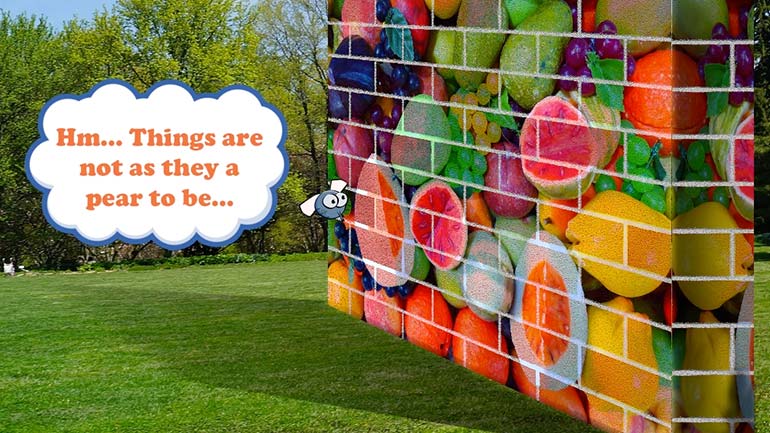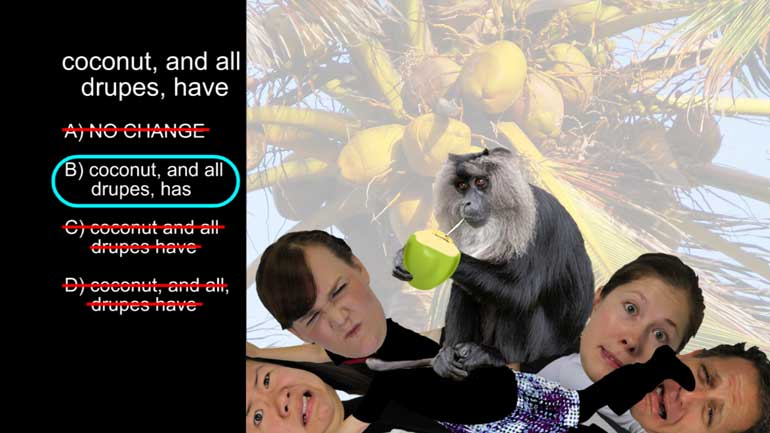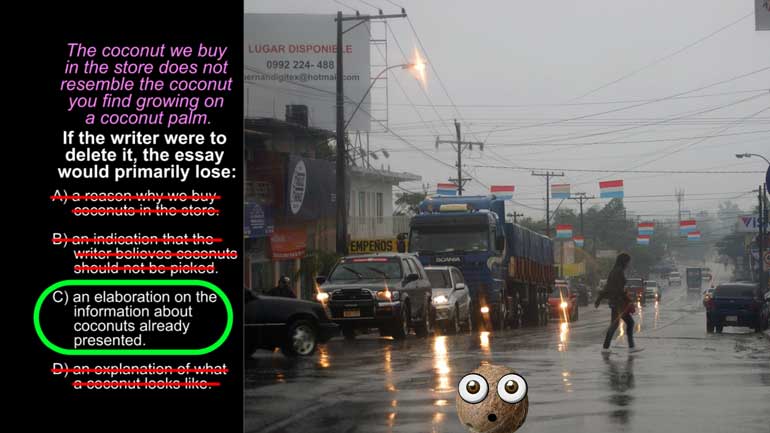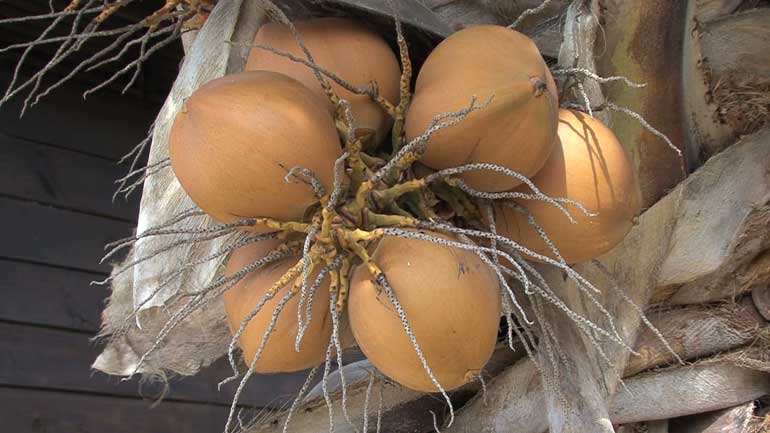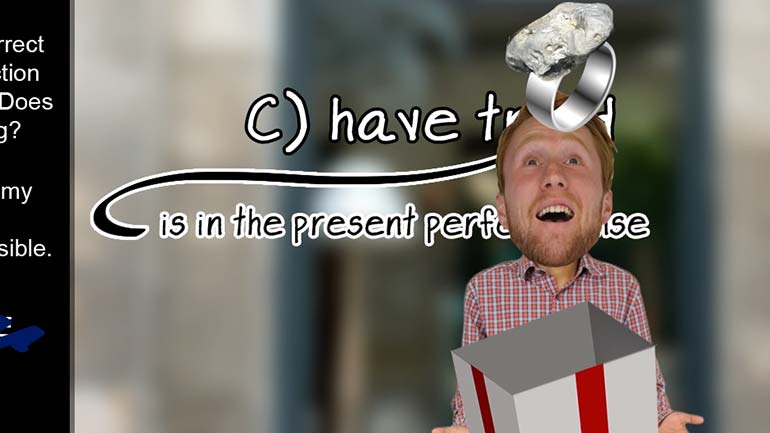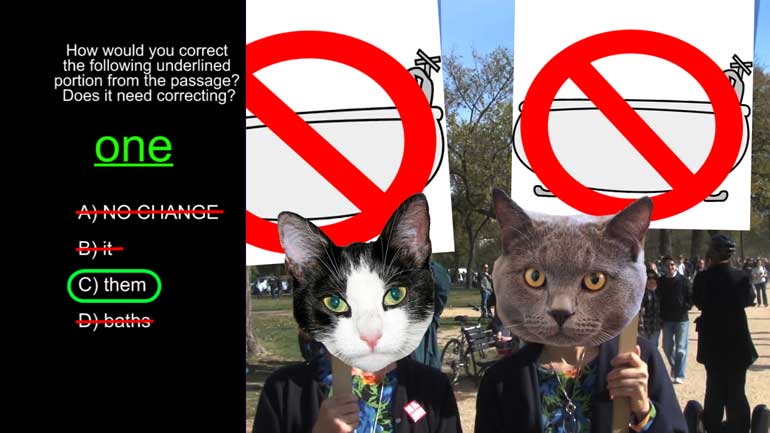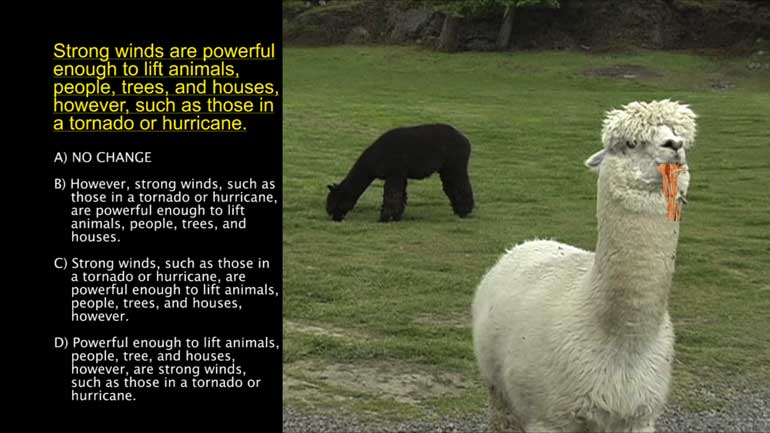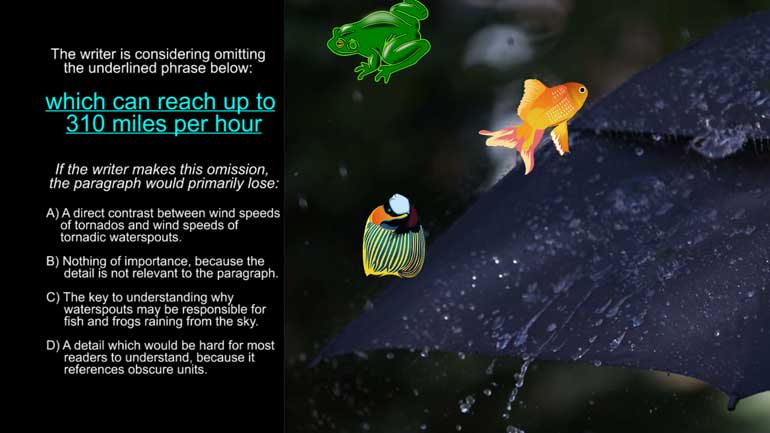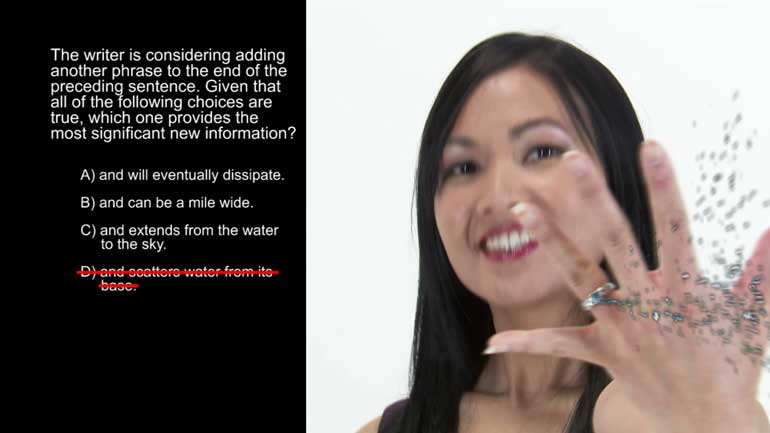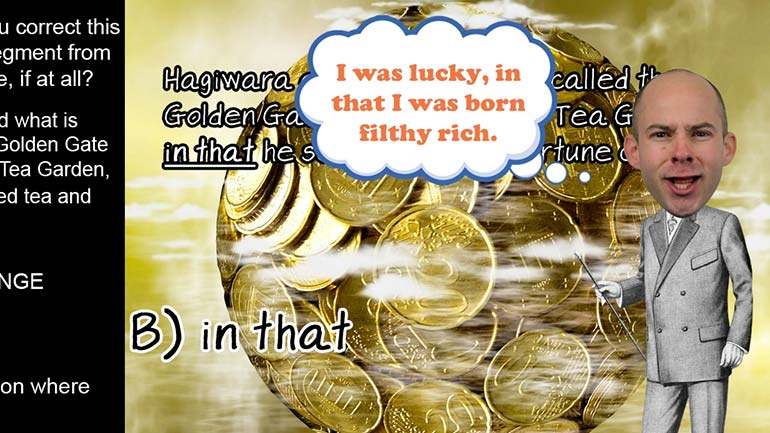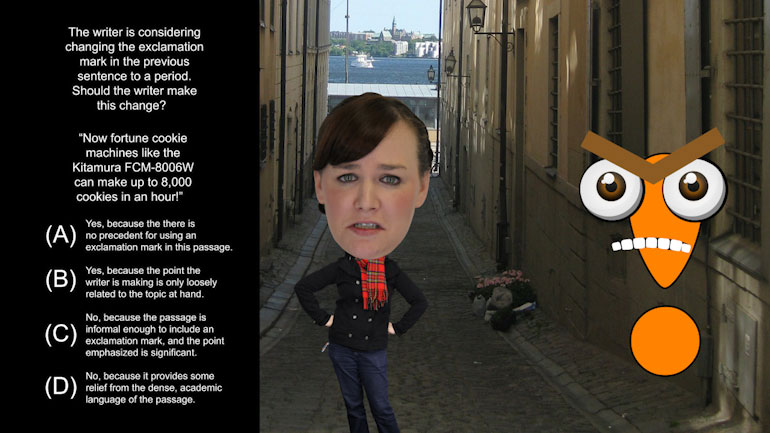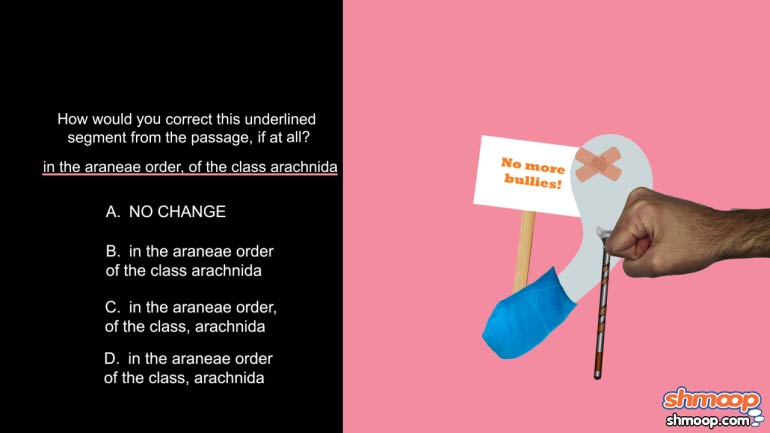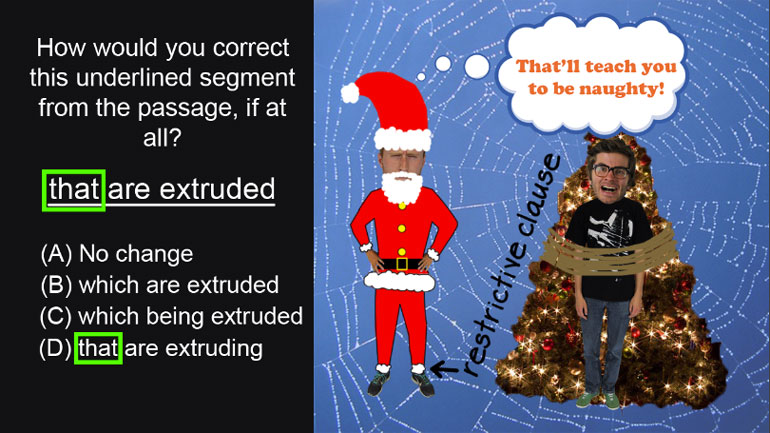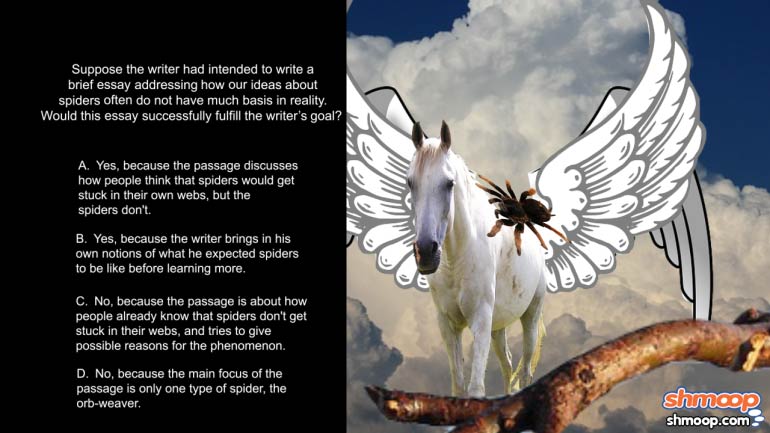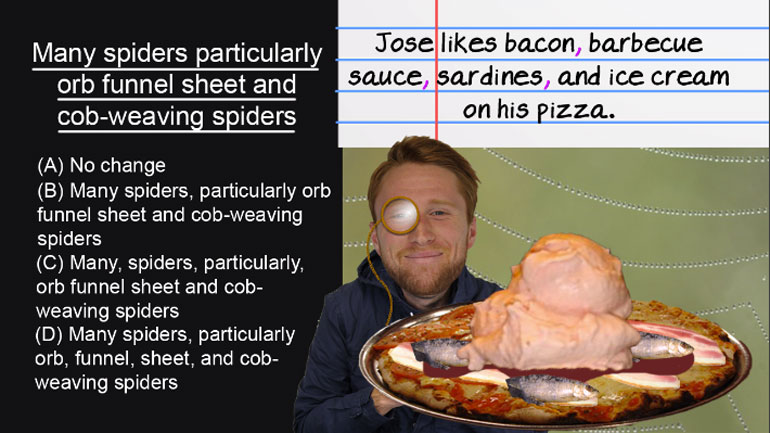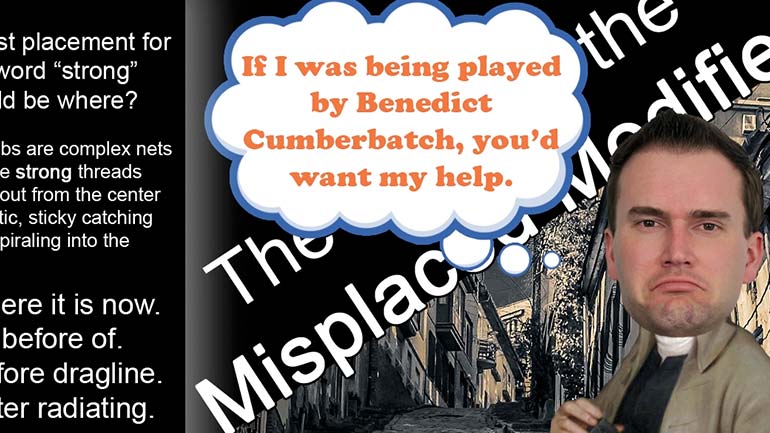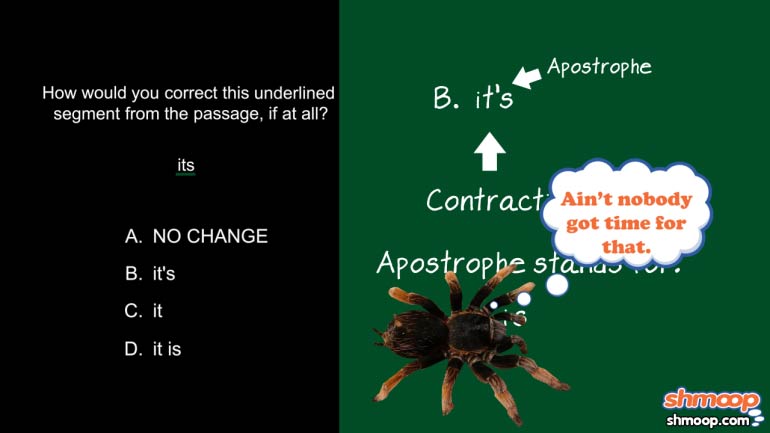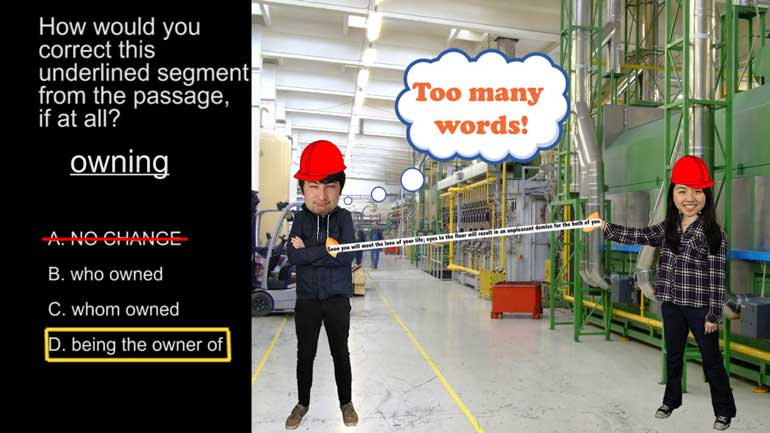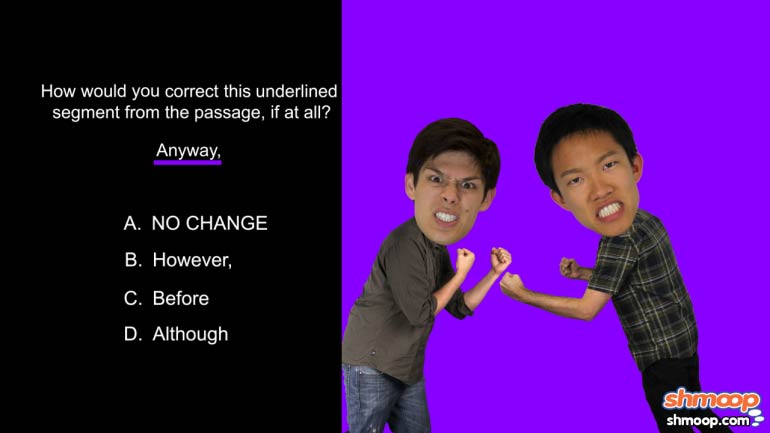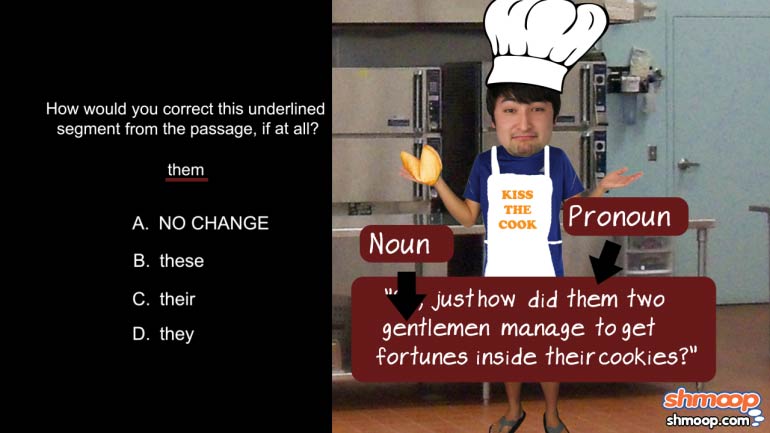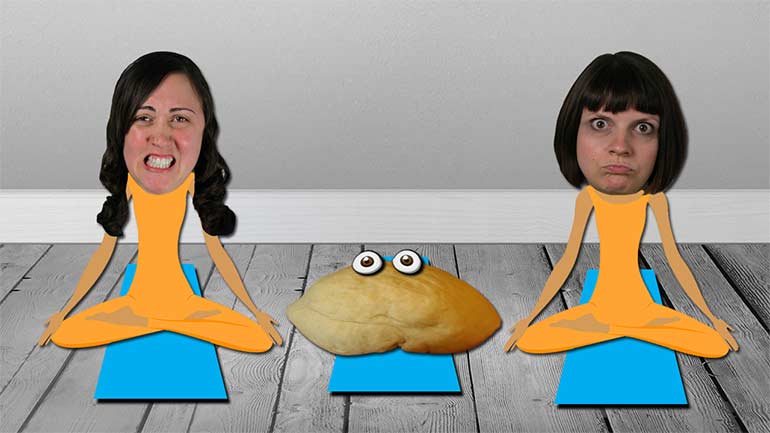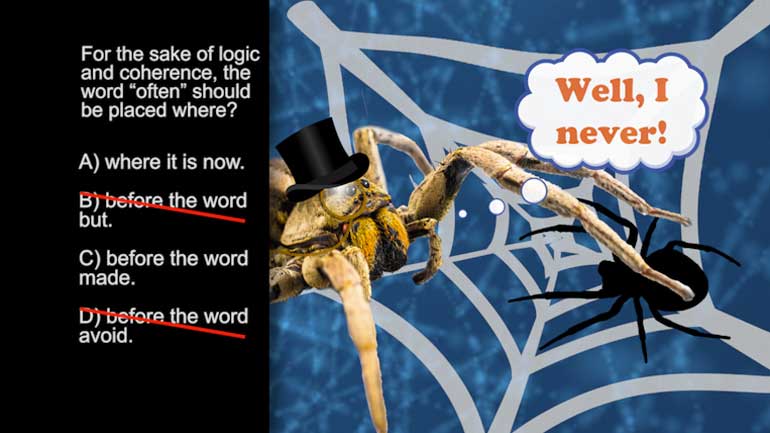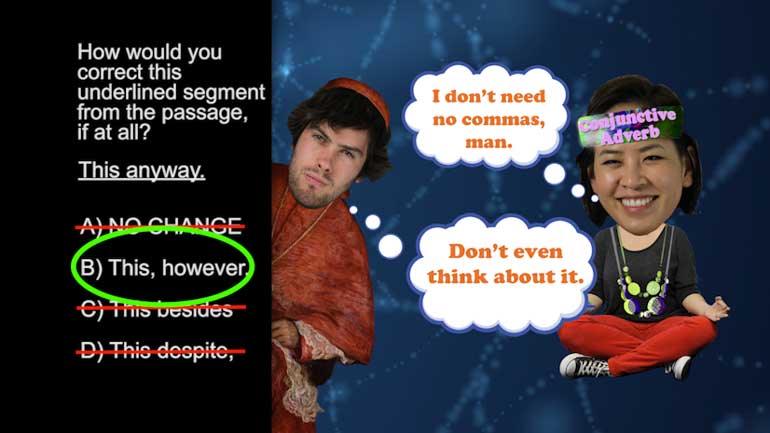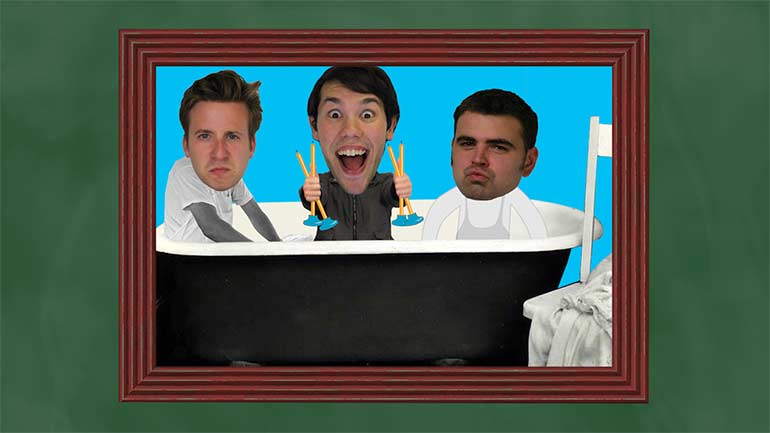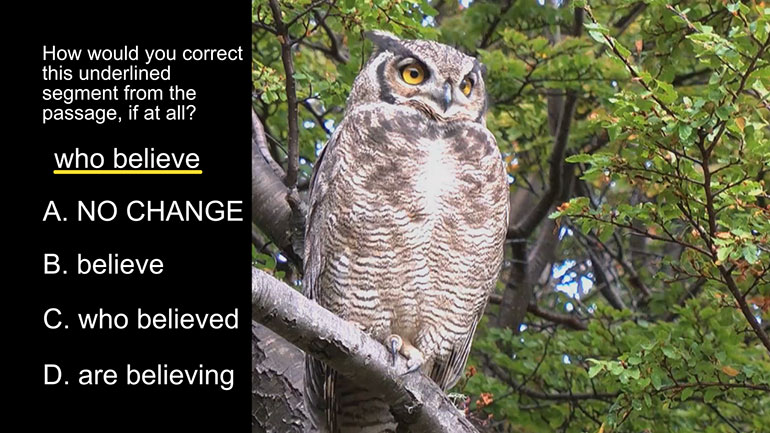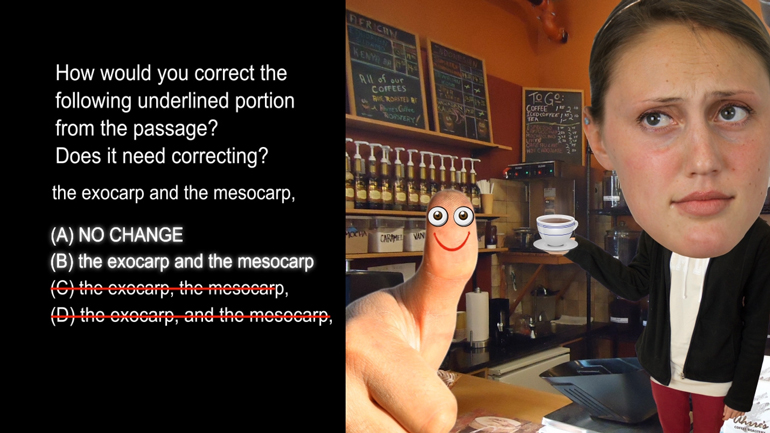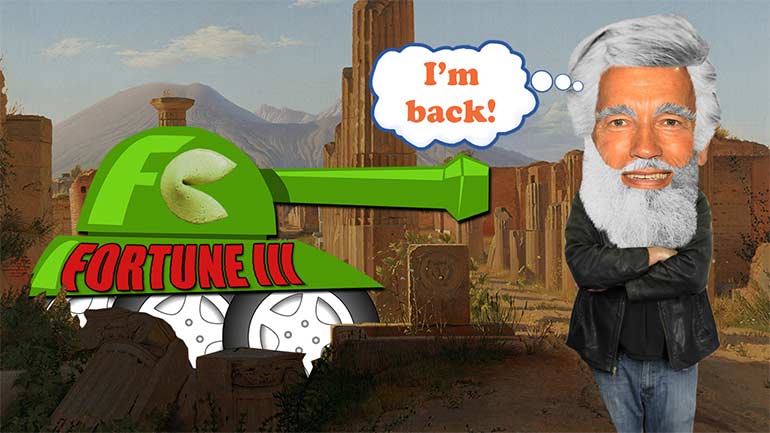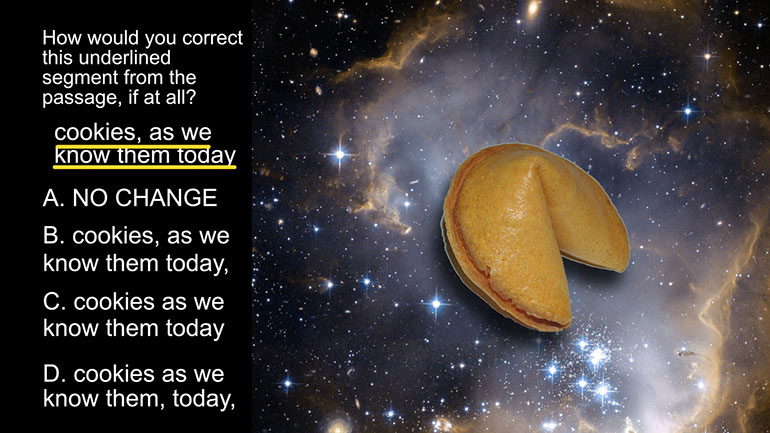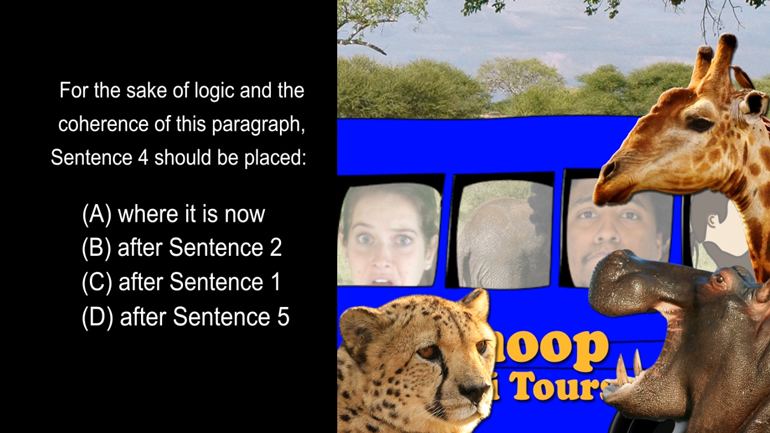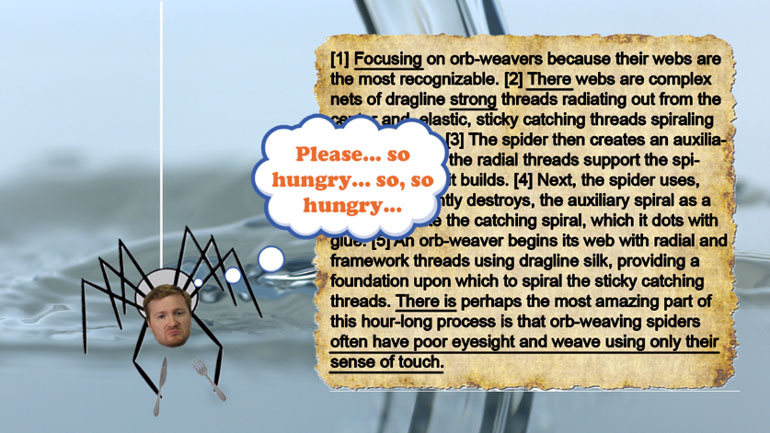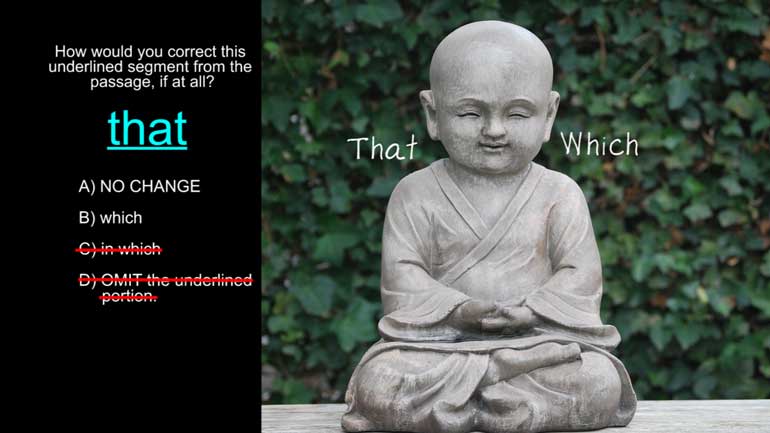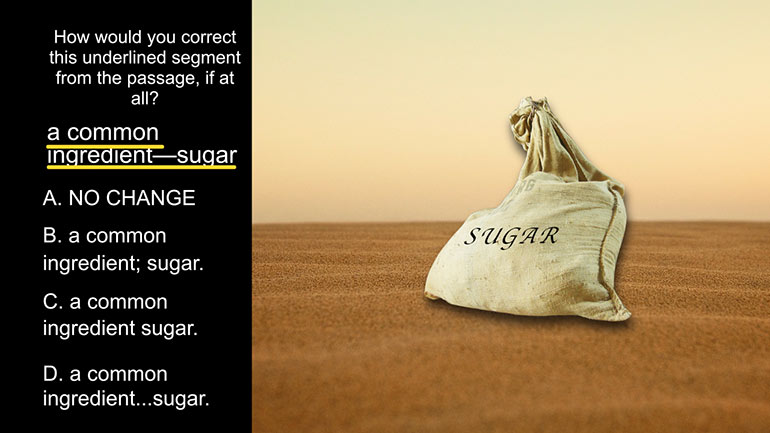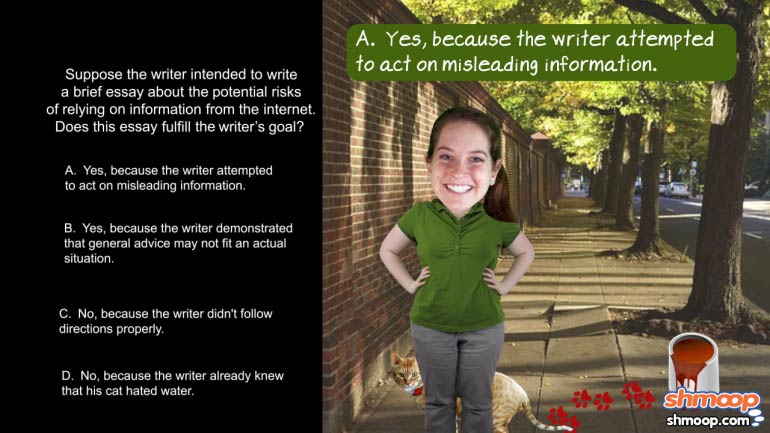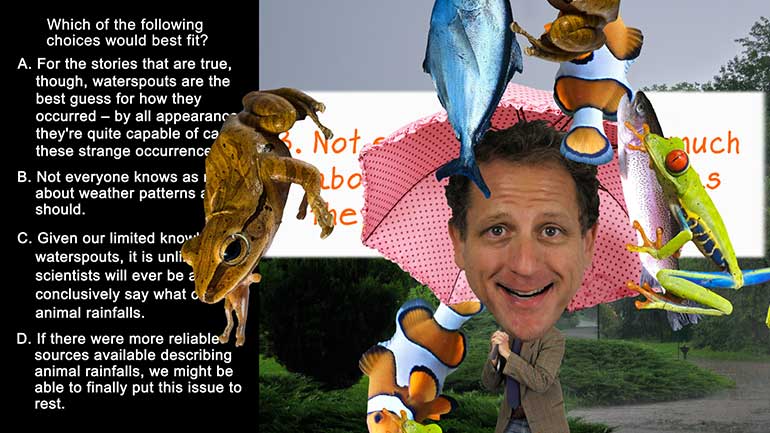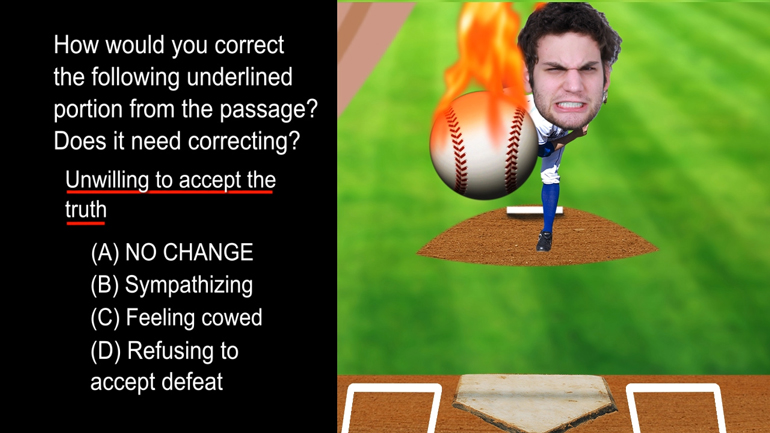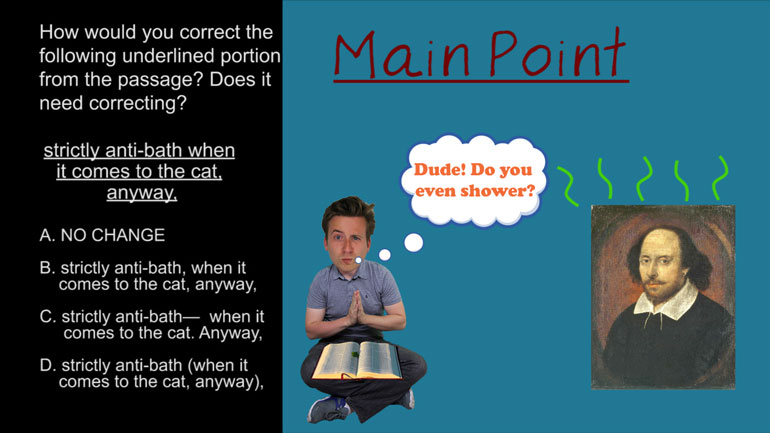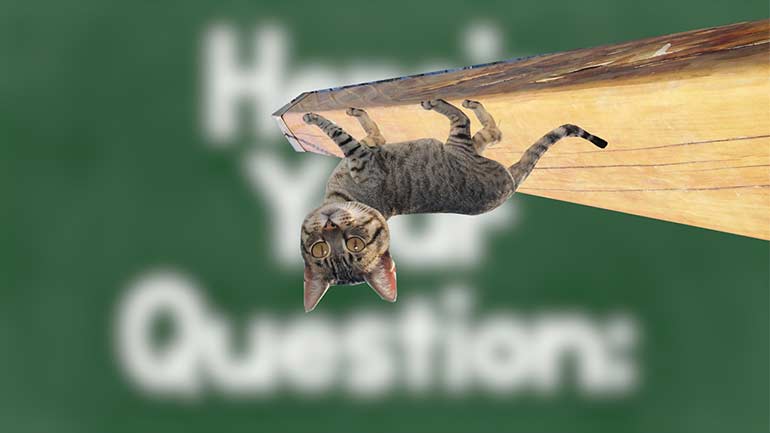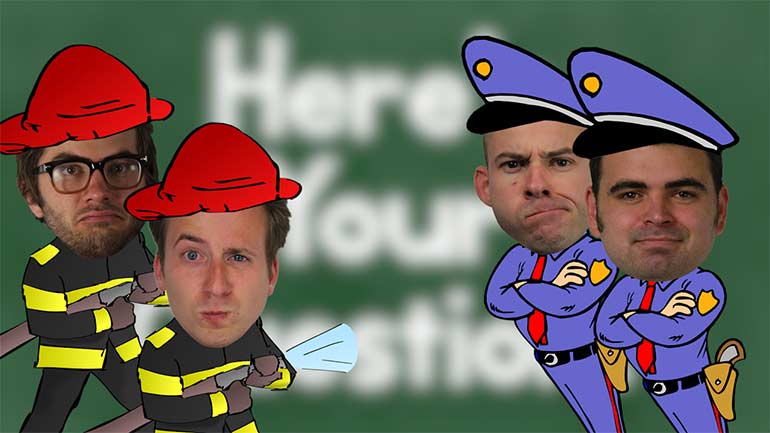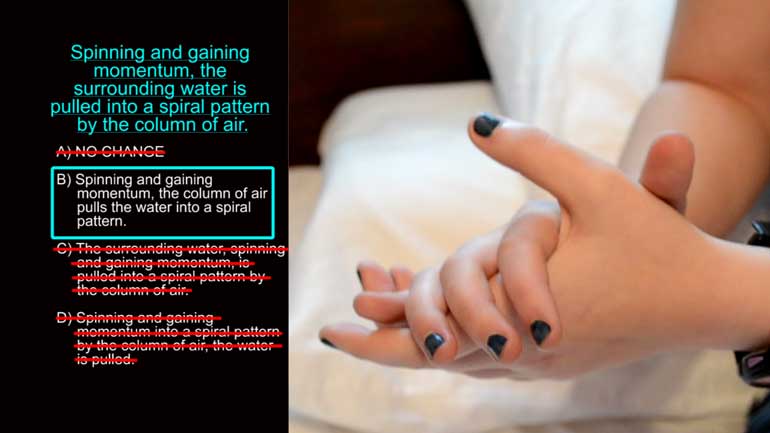ShmoopTube
Where Monty Python meets your 10th grade teacher.
Search Thousands of Shmoop Videos
Passage Drill Videos 75 videos
ACT English: Passage Drill Drill 1, Problem 1. Conjunctive Adverbs.
ACT English: Passage Drill 1, Problem 2. What is the right tense for this verb?
ACT English: Passage Drill Drill 1, Problem 3. Keeping an eye out for wordiness.
ACT English 1.14 Passage Drill 218 Views
Share It!
Description:
ACT English: Passage Drill Drill 1, Problem 14. Checking for redundant or irrelevant information.
Transcript
- 00:03
Here's your Shmoop du jour, brought to you by true nuts. The Coen Brothers' wacky sequel to True Grit.
- 00:40
The writer is considering omitting the underlined sentence:
- 00:43
A true nut, such as the acorn, are indehiscent or do not open at maturity to release its seeds.
- 00:51
If the writer were to make this deletion, the essay would primarily lose which of the following?
- 01:00
It's important for us to take a good look at our writing and ask ourselves if there's
Full Transcript
- 01:00
It’s important for us to take a good look at our writing and ask ourselves if there’s
- 01:03
any material that can be removed. If there's redundant or irrelevant information, it needs
- 01:09
to be cut because it can obscure the main point.
- 01:11
However, it's also important to be sure that we don't cut too much from our work.
- 01:15
If we go edit-crazy, then we run the risk of losing essential thoughts and ideas.
- 01:19
So we're going to put ourselves in this writer's shoes and assess how the sentence
- 01:22
fits in with the big picture. (Let's hope those shoes have been deodorized.)
- 01:27
Choice (A) is a cinch to eliminate because it's flat-out wrong. The sentence doesn't
- 01:31
give us one clue about the formation of nuts, so cutting it wouldn't remove that information
- 01:36
from the essay as a whole.
- 01:37
Freud would tell you that nuts are formed by bad childhoods.
- 01:41
We may be oversimplifying on that one.
- 01:43
(B) is an easy elimination as well. Nowhere does the sentence say that nuts grow slowly.
- 01:47
Anyway, whoever thinks that nuts grow slowly has never heard of the ever-expanding acorn
- 01:52
of Guadalajara.
- 01:52
OK, that was an example of a sentence that could be cut from our own writing because
- 01:56
it was totally untrue. This brings us to choices (C) and (D).
- 02:01
(D) disses the sentence by calling it irrelevant, but (C) disagrees, saying that if the sentence
- 02:06
were cut, we'd lose this scintillating explanation of what qualifies as a true nut. We're going
- 02:11
to side with (C) on this one and dub it the correct answer. The topic of nuts is introduced
- 02:16
so that the reader understands the difference between nuts and coconuts, especially because
- 02:20
the word "nut" is part of the fruit's name. This particular sentence identifies what it
- 02:24
is about a true nut that makes it different from a coconut.
- 02:29
We guess that means a coconut is a false nut. Can we ever trust one again?
Related Videos
ACT English: Punctuation Drill 2, Problem 2. Where should the semi-colon be placed?
ACT English: Punctuation Drill 3, Problem 1. How should this sentence be changed so that it is grammatically correct?
ACT English: Punctuation Drill 3, Problem 2. How should we properly hyphenate the words in this sentence?
ACT English: Punctuation Drill 3, Problem 4. Which choice best formats this list of items?
ACT English: Punctuation Drill 2, Problem 1. Which choice of punctuation best completes the sentence?
